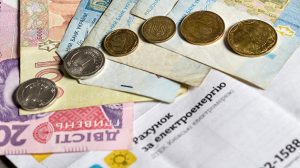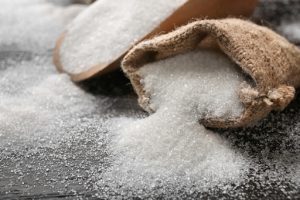
Some 94% of Ukrainians think that utility rates are excessive, and 70.4% – that the authorities are unsuccessfully countering the coronavirus (COVID-19) disease, according to the results of a survey conducted by the Ukrainian Sociological Group from January 26 to February 2, 2021.
According to a sociological survey, which was release in the press center of the Interfax-Ukraine on Wednesday, 94% of Ukrainians think that tariffs for utility services are excessive, 3.6% think that tariffs are economically justified, and 2.4% found it difficult to answer.
Answering the question what was the main reason for the increase in utility tariffs for the population, 44.9% of respondents named mismanagement and lack of professionalism of the government, 23.6% – collusion of energy companies, 14.2% – requirements of the International Monetary Fund (IMF) and international lenders, 9.6% – the decision of the authorities to switch to free pricing for energy resources, 3.1% – an increase in world energy prices, and 4.6% found it difficult to answer.
In addition, answering how successfully the authorities are in countering the COVID-19 epidemic in Ukraine, 3.4% of respondents answered that countering is successful, 20.9% – more likely to be successful, 31.6% – more likely to be unsuccessful, 38.8% – unsuccessful, and 5.3% found it difficult to answer.
Answering what the respondents are more afraid of: the COVID-19 epidemic or the economic consequences of the quarantine (lockdown), 29.2% answered that they were afraid of the epidemic, 59.1% – the economic consequences of quarantine restrictions, 7.8% were afraid of neither of these, and 3.9% found it difficult to answer.
A total of 1,209 respondents aged 18 and older were interviewed during the survey. The sample set is a multistage random one, at the last stage – a quota one. The survey method is an individual face-to-face interview at the respondent’s place of residence (at home). The statistical error does not exceed 3.0%

Electricity production in the Integrated Power System of Ukraine in January 2021 increased 1.1% compared to January 2020, to 14.259 billion kWh, the Ministry of Energy has told Interfax-Ukraine.
Nuclear power plants (NPP) last year reduced electricity generation by 8.4% compared to the same period last year, to 7.151 billion kWh. In particular, production of electricity at Zaporizhia NPP amounted to 2.716 billion kWh (9.8% less compared to 2019), Yuzhnoukrainsk some 1.9 billion kWh (13.9% less), Rivne NPP some 1.815 billion kWh (1.1% less), and Khmelnytsky NPP some 720 million kWh (4.5% less).
Thermal power plants (TPP), as well as combined heat and power plants and cogeneration plants increased their output by 12.6%, to 5.611 billion kWh. In particular, TPPs increased production by 20.9%, to 4.067 billion kWh, while combined heat and power plants and cogeneration plants cut it by 4.6%, to 1.544 billion kWh.
Hydro power plants and pumped storage power plants increased production by 12.6%, to 729 million kWh, and block stations cut by 6.3%, to 142 million kWh.
Electricity production by non-traditional sources (wind farms, solar power plants, biomass) grew by 21.5%, to 626 million kWh.
The share of nuclear power plants in the structure of electricity production accounted for 50.2%, thermal power plants, combined heat and power plants and cogeneration plants 39.4%, hydro power plants and pumped storage power plants 5.1%, block stations 1%, alternative sources 4.4%.
In addition, the supply of thermal energy in January 2021 decreased 9.6% compared to the same period last year, to 3.272 million gigacalories.
National bank of Ukraine’s official rates as of 10/02/21

Source: National Bank of Ukraine

Astarta has sold Savyntsi and Novoivanivske sugar factories due to a lack of raw materials and sugar beet producers in Kharkiv region, the press service of the company has said.
The manufacturer clarified that it intends to free up internal resources in favor of the main sugar factories in Poltava, Vinnytsia and Khmelnytsky regions through the sale of non-core assets.
Astarta also noted that in 2020 the company focused on increasing the profitability of the sugar segment and optimizing production by focusing on key sugar factories.
According to the company, export of sugar from Ukraine has been under pressure from low prices in the domestic and international markets for several years, which led to the withdrawal of some producers from the market and a decrease in production.
The co-owner of the agricultural holding, Viktor Ivanchyk, said in November 2020 that Astarta planned to sell these assets.
“Last year we worked without Savyntsi plant, and this year without Novoivanivske plant in Kharkiv region. Sugar beet is not grown around these enterprises due to weather conditions. Kharkiv region is one of the regions where the drought is most acute,” he explained.
Astarta is a vertically integrated agro-industrial holding operating in eight regions of Ukraine. It includes eight sugar factories, agricultural enterprises with a land bank of 243,000 hectares and dairy farms with 25,000 animals, seven elevators, a biogas complex and a soybean processing plant in Poltava region.

Minister of Economy Ihor Petrashko expects to find such a version of the bill on amendments to the law on public procurement, which will satisfy international partners and will support the Ukrainian manufacturer.
“Without stimulating production in Ukraine and using public funds to purchase goods produced in Ukraine, there will be no significant progress in the country,” Petrashko told a news conference during the Ukrainian Forum “Ukraine 30. Coronavirus: Challenges and Responses” held on Tuesday.
According to the minister, all countries of the European Union and the United States use incentives to ensure that public funds primarily go to the purchase of those goods that are produced in their countries.
Petrashko said that at the moment consultations with the EU and the United States on the local content bill (No. 3739 on amendments to the law of Ukraine on public procurement) are underway, as the reaction to it is ambiguous.
The minister added that the use of non-price criteria will benefit Ukraine’s trade with the European Union and the United States.
“Therefore, we want to find a format of persuasion and find the version [of the bill] that will allow us to support the manufacturer,” Petrashko said.